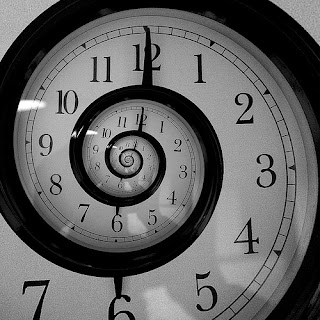The children were gone, but the children were not gone.
Mounted on a steed as thin and frail as a child’s stick-figure drawing, he fled across an endless desert landscape. Like his horse, the rider possessed little substance; his gaunt frame was a mosaic of exposed bone and blistered skin, bleached and baked brick-red beneath an unremitting noonday sun.
The mare heaved, expelling a great, sorrowful sigh. He might have stroked her neck, might have offered some consolation or encouragement, but his hands were as they always were—hooked like claws around the damned pipe. His fingers moved over its holes in sharp, involuntary jerks. Hot, hollow breaths were drawn from his lungs and funneled through the slender ivory tube that rested between cracked, bleeding lips.
Terrifying in its innocent cheeriness, the familiar melody swirled in the air, trailing behind him like an invisible cape.
As always, when the piper played, the children followed.
An army of footprints tracked through the sands behind him. Each tiny imprint vanished an instant after it was laid, carried away and forgotten by an indifferent wind. Tirelessly they marched, the evanescent tracks the only trace of a lonely hoard that relentlessly pursued the piper and his enchanting tune.
The mare heaved again, shuddered, and, with an almost silent whinny, collapsed. The piper toppled headfirst into an abrasive dune. Unable to free his hands from the cursed instrument, he flailed in the shifting sands, drowning beneath coarse waves.
Ghost hands lifted him from the gritty current and set him upright near the dead animal. Unable to speak, he bid the horse farewell with his yellow, unblinking eyes. Her spirit had repaid its cosmic debt, and now he would have to carry out his penance in solitude. The piper trudged forward.
On earth, the children were gone; they were drowned in a river.
But here, the children were not gone; they would follow him forever over an endless ocean of sand.












